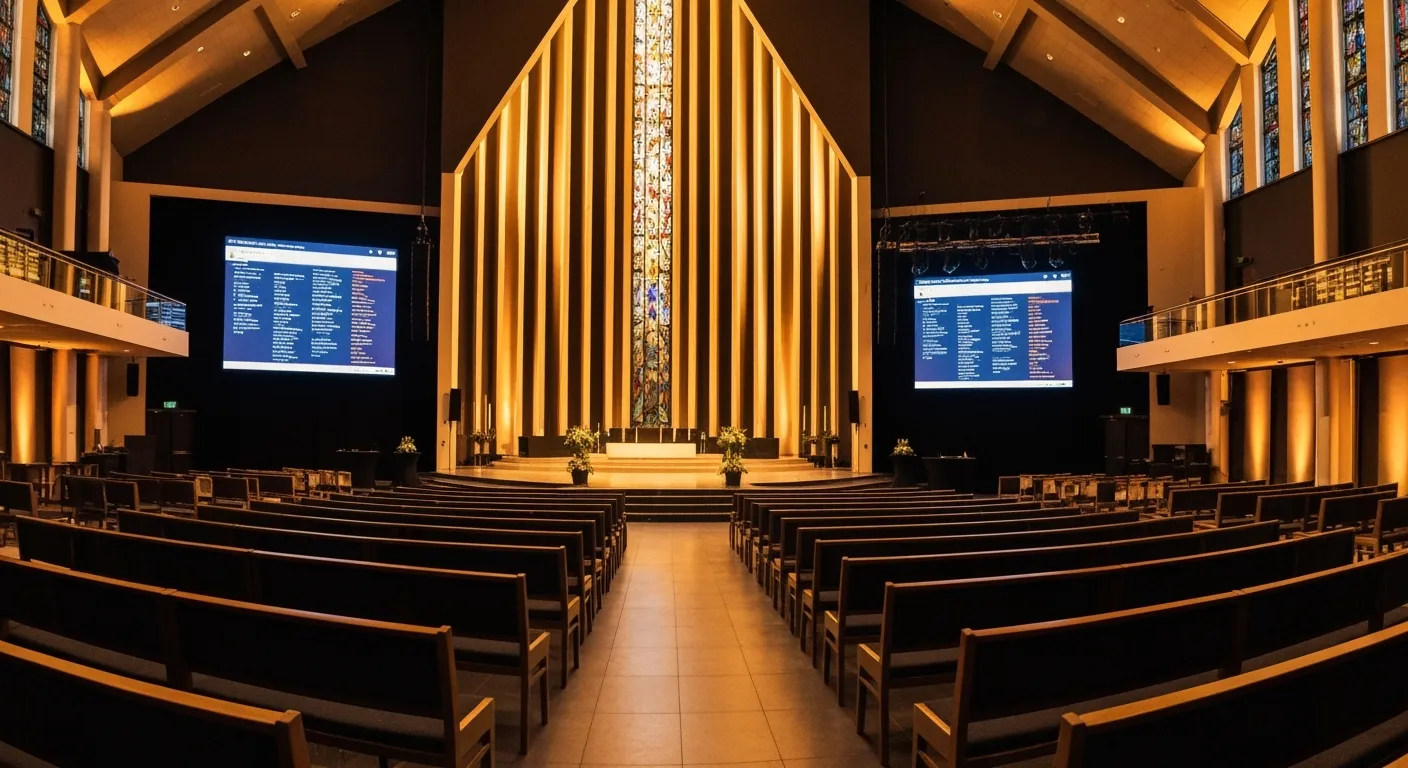Unlocking the Power of SMS in Religious Event Management
Churches and synagogues stand at the crossroads of tradition and technology, finding new ways to connect and engage their communities effectively. SMS, or text messaging, offers an accessible, immediate, and highly engaging channel to streamline event management, foster community participation, and enhance communication efficiency across diverse congregation members. This article explores key strategies, tools, and best practices that faith organizations can adopt to transform their event planning and outreach using SMS technology.
Selecting the Right SMS Platform to Enhance Church and Synagogue Events
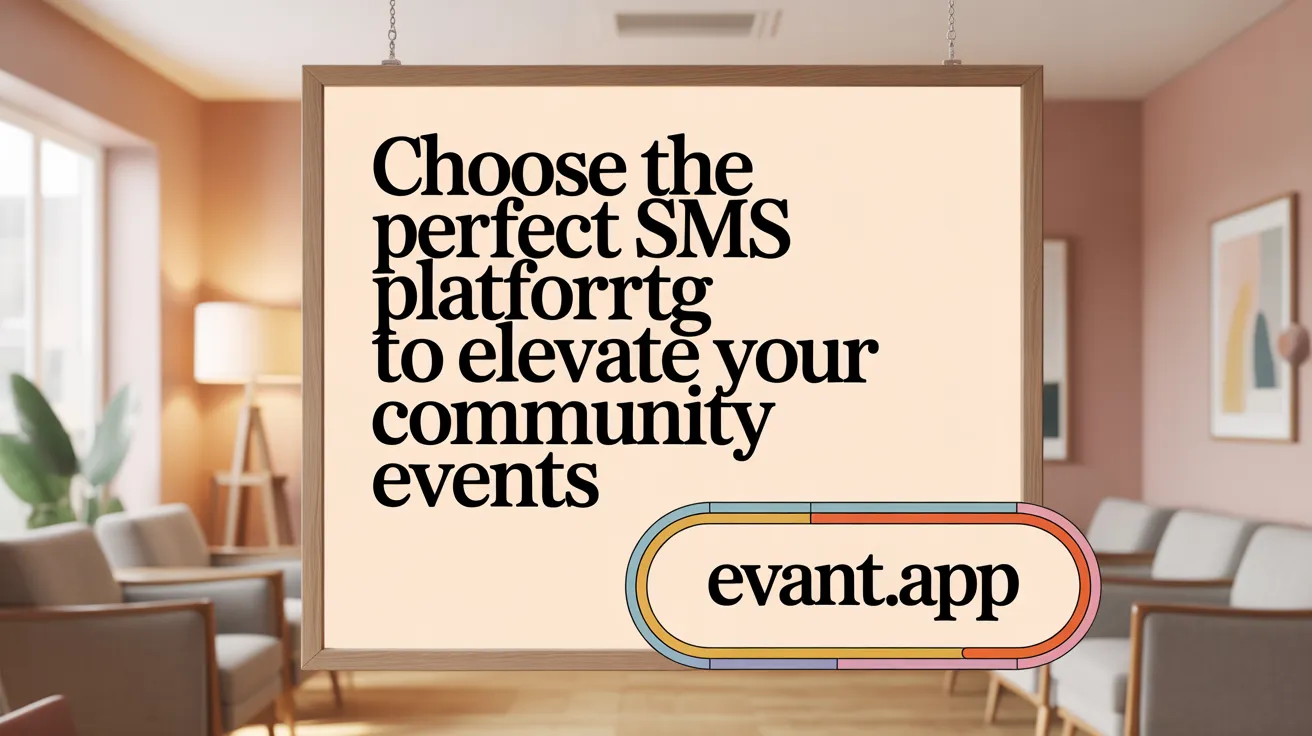 When choosing an SMS platform to streamline event management and improve communication within churches and synagogues, it’s essential to consider features that match the organization’s needs. Several platforms stand out as top choices for religious communities.
When choosing an SMS platform to streamline event management and improve communication within churches and synagogues, it’s essential to consider features that match the organization’s needs. Several platforms stand out as top choices for religious communities.
Tithely Messaging is a popular option, offering bulk texting, automated workflows, and two-way messaging. This enables churches to send event reminders, coordinate volunteers, and respond to inquiries instantly.
Clearstream is known for its ability to personalize messages, set up automated schedules, and seamlessly integrate with existing church management software like Planning Center or Church Community Builder. This makes it easier to coordinate events and maintain consistent communication.
EZ Texting and SimpleTexting provide scalable mass texting solutions suited for both small and large congregations. They include features such as targeted messaging, automation, and keyword campaigns, ensuring relevant communication reaches specific groups—such as youth, seniors, or volunteers.
Flocknote focuses on smaller churches, combining email and SMS into a unified platform. It offers group messaging, scheduled sends, and two-way communication, making it ideal for weekly updates, event invitations, or urgent alerts.
For organizations requiring advanced features, platforms like Tatango and Subsplash deliver scalable solutions with robust automation, multimedia sharing, detailed analytics, and segmentation capabilities. These features allow for highly targeted campaigns and complex event coordination.
Choosing the right platform depends on the congregation’s size, technical capacity, and specific communication goals. Most top options support automation, personalized messaging, and multiple communication channels to ensure messages are timely, relevant, and engaging.
In summary, reliable tools such as Tithely Messaging, Clearstream, EZ Texting, Flocknote, Tatango, and Subsplash provide all the necessary features to improve event management and strengthen community engagement through effective SMS communication.
Implementing SMS Strategies to Streamline Community Event Planning
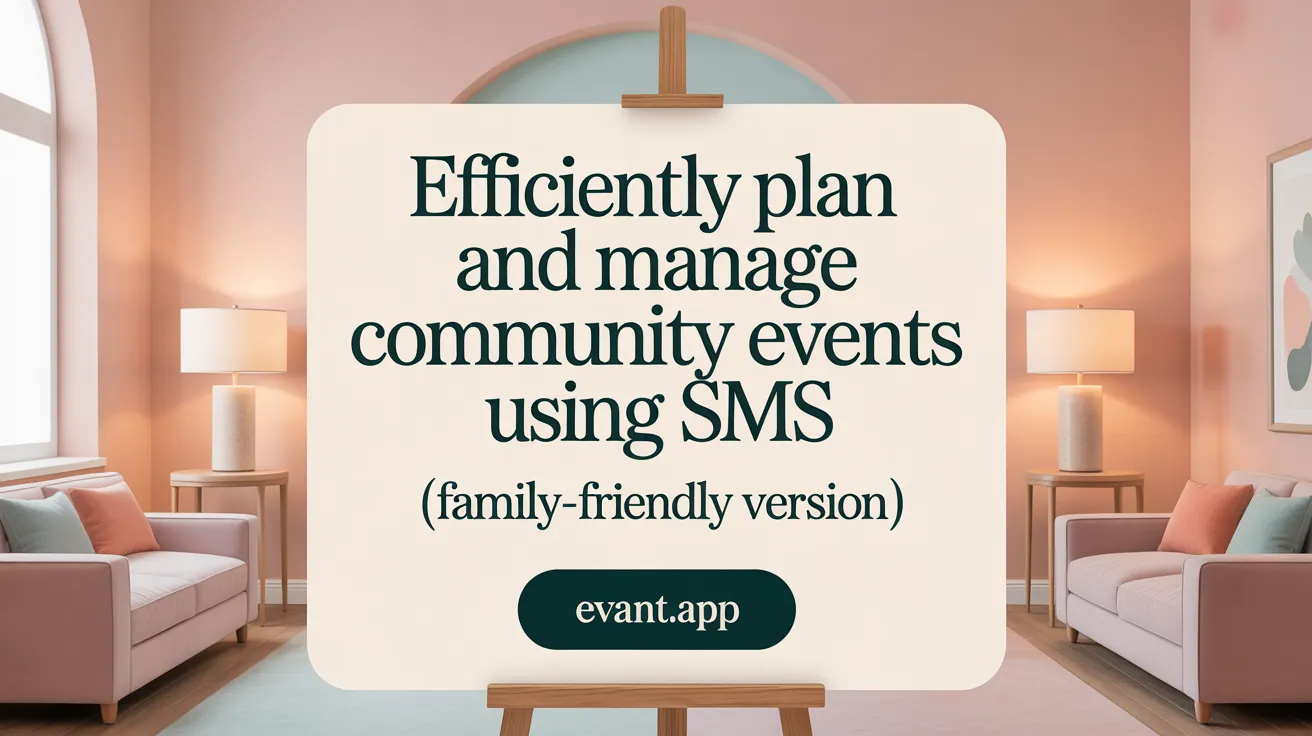
What strategies and best practices should religious groups follow to implement SMS for streamlining community event planning?
Religious organizations can significantly enhance their event planning and community engagement by adopting effective SMS strategies. The first step involves building an opt-in contact list, which can be achieved through church announcements, QR codes at the sanctuary, or sign-up forms during services. It’s essential to manage consent carefully, ensuring compliance with regulations and respecting members' preferences.
Segmentation plays a vital role in targeted communication. Churches can categorize contacts based on ministries (youth, seniors, volunteers), age groups, or attendance frequency. This allows for sending relevant messages that are more likely to resonate and boost participation.
Automation and scheduling are powerful tools to streamline communication efforts. By scheduling reminders, RSVP requests, and follow-up messages, churches can increase event attendance and reduce last-minute cancellations. Integrating SMS platforms with existing church management systems and scheduling tools ensures timely announcements and simplifies coordination.
Best practices include keeping messages short, clear, and engaging. Personalizing content—such as addressing members by name or mentioning specific events—fosters a sense of community. Clear calls to action, like clicking a link to RSVP or volunteering, guide recipients effortlessly.
Utilizing features like two-way messaging enables members to respond with questions or confirmations, enhancing engagement. Multimedia content, such as images or videos, can make invitations more appealing. Additionally, tracking responses and open rates with analytics helps improve future campaigns.
In summary, by focusing on consent management, audience segmentation, automation, personalization, and integrated platform use, religious groups can optimize SMS communication. These strategies foster higher participation, better volunteer coordination, and a stronger sense of community around church events.
Maximizing Event Promotion and Community Engagement with Mass Texting
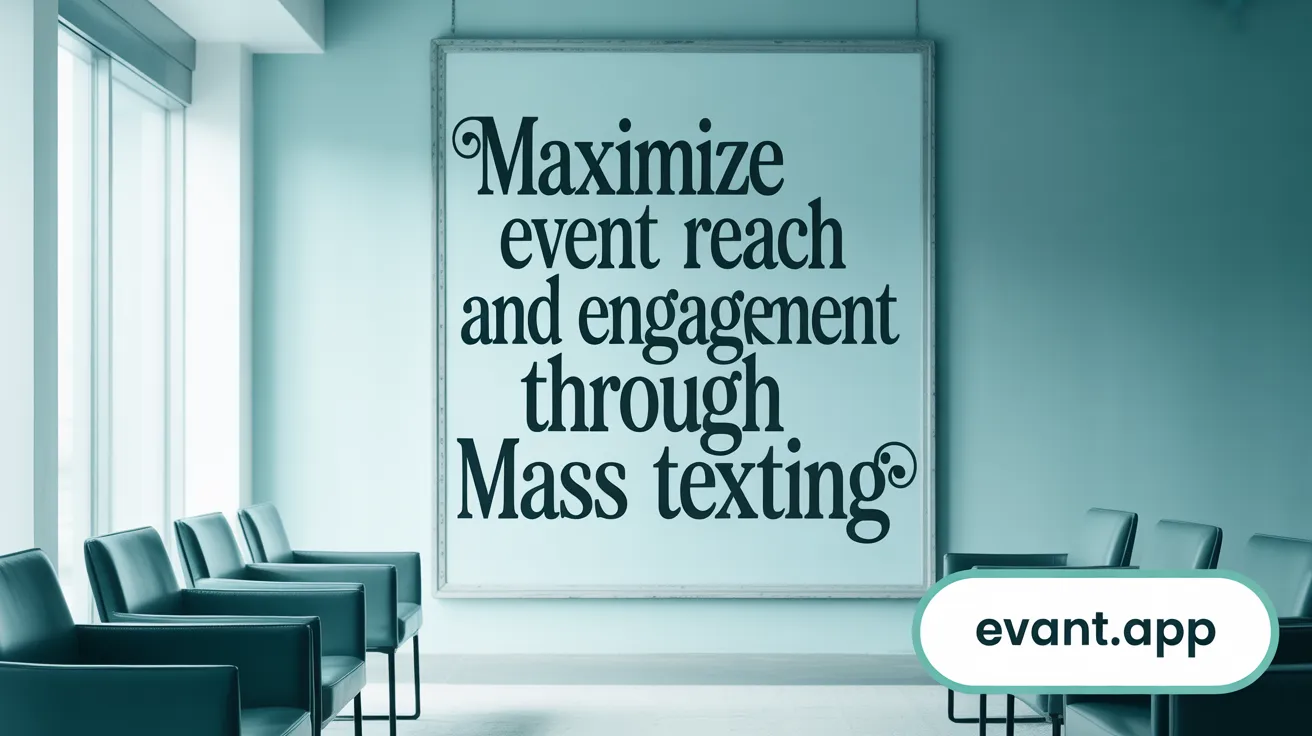
How can religious organizations effectively use mass texting services for event promotion and community engagement?
Religious organizations can significantly enhance their outreach efforts by using mass texting services for promoting events and strengthening community bonds. These platforms enable churches to send instant announcements about upcoming services, special gatherings, or community outreach programs, ensuring members receive timely information. Automated reminders about event dates, times, and locations help to increase attendance and participation.
Targeted messaging is crucial. By segmenting contact lists based on groups like youth, seniors, volunteers, or specific ministries, churches can tailor content to be more relevant, thus boosting engagement. For example, a youth group might receive special invites or motivational scripture, while volunteers get shift reminders.
In addition to event promotion, mass texting facilitates the quick sharing of urgent updates, such as cancellations or venue changes, reducing confusion and ensuring clear communication.
Building a sense of community is also possible through inspirational and urgent messages. Sending regular devotional quotes, prayer requests, and community support messages fosters spiritual growth and unity.
Advanced SMS platforms often include automation features like scheduled messages and two-way communication, allowing churches to respond promptly to congregant inquiries or prayer requests.
Overall, integrating a reliable mass texting service into church communication strategies allows for resource-efficient, immediate, and personal outreach. It helps foster a well-informed, connected, and engaged congregation, essential for vibrant community life and growth.
Enhancing Event Efficiency and Organization Through SMS Messaging
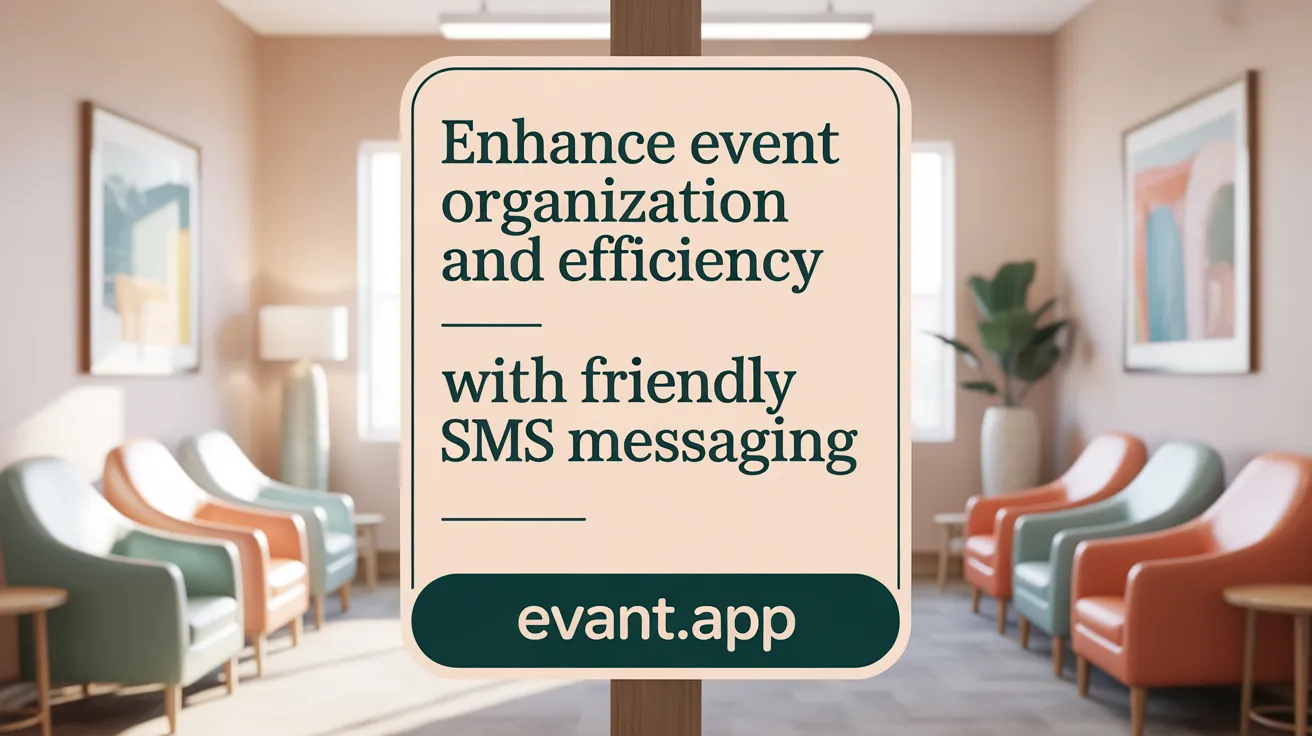
How can SMS messaging be incorporated to make event management more efficient and organized in religious communities?
Using SMS messaging can transform how churches and religious groups manage their events. By sending instant reminders and updates, churches ensure that members stay informed and engaged throughout the event planning process.
Start by promoting upcoming events early through scheduled mass texts, which can include details about the event, venue, and time. As the event approaches, churches can send timely reminders to all participants, reducing no-shows and last-minute confusion.
Post-event, SMS follow-ups can thank attendees, share event highlights, or invite feedback through simple polls or surveys. This continuous communication boosts community involvement and encourages repeat participation.
Segmenting contacts by groups—such as youth, seniors, or volunteers—enables tailored messaging. For example, volunteer shift reminders can be targeted only at those committed to specific roles, increasing efficiency.
Automation tools allow churches to schedule messages, send bulk updates, and track responses, reducing manual effort. Many platforms also support two-way communication, so members can confirm attendance or ask questions directly via text.
In emergencies or last-minute changes, SMS provides a fast way to inform everyone immediately, ensuring safety and coordination.
Ultimately, integrating SMS into event management creates a seamless experience, increases engagement, and streamlines organizational efforts.
| Strategy | Features | Benefits | Example Use |
|---|---|---|---|
| Event promotion | Scheduled, bulk messaging | Maximize awareness | “Join us this Sunday for the community picnic!” |
| Reminders | Automated, personalized messages | Reduce no-shows | “Reminder: Worship service tomorrow at 10 AM” |
| Follow-up | Automated surveys, feedback forms | Increase community feedback | “Tell us how we did at the youth retreat” |
| Volunteer coordination | Keywords, auto-responses | Simplify sign-ups & shifts | Text ‘Volunteer’ to join the team |
| Emergency alerts | Instant mass texting | Ensure safety & info flow | “Service postponed due to weather” |
Implementing these SMS strategies improves event turnout, streamlines communication, and fosters a stronger sense of community within religious organizations.
Leveraging SMS to Boost Community Engagement and Communication Efficiency
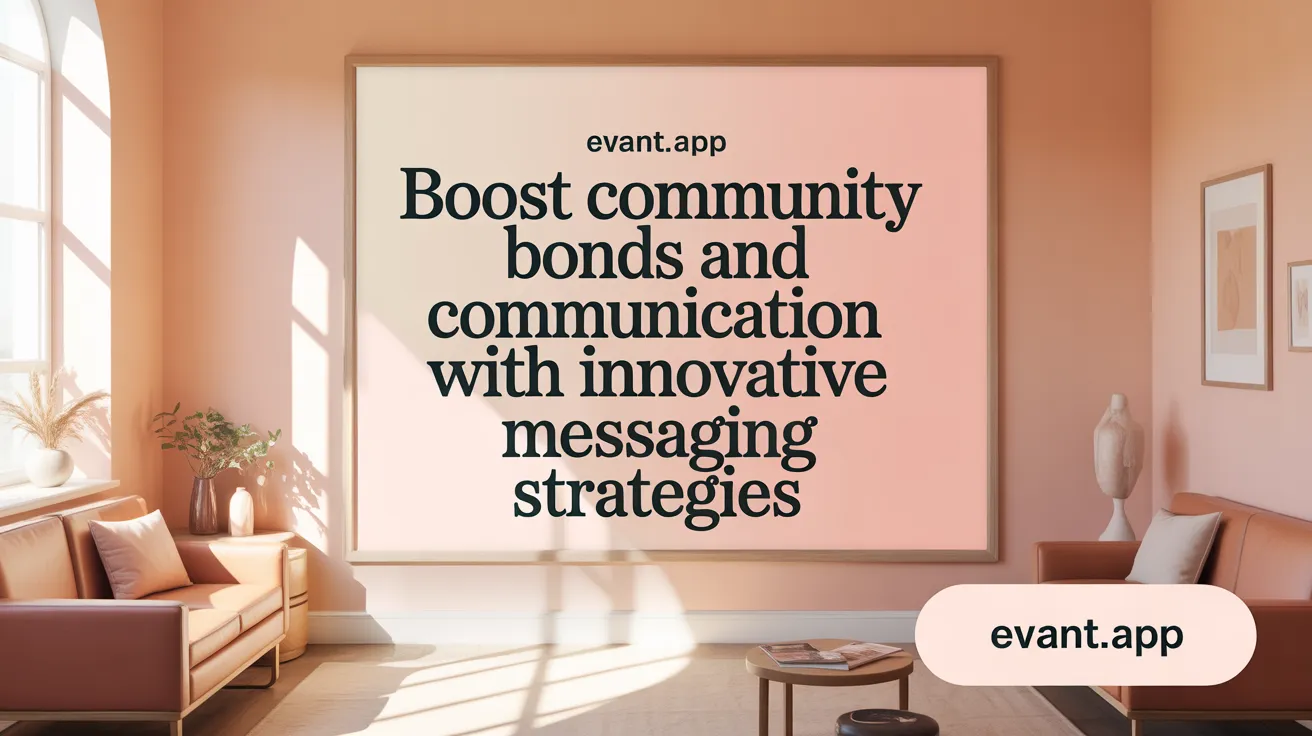
How can churches and synagogues leverage SMS technology to enhance community engagement and improve communication efficiency?
Churches and synagogues can significantly improve their community outreach by using SMS technology to send instant, direct messages. This method ensures that members receive timely updates about upcoming events, prayer requests, or urgent changes such as weather-related cancellations.
The high open rate of SMS — up to 98% — means messages are read quickly, creating a sense of immediacy that email cannot match. For example, a last-minute event change or community announcement can be communicated instantly across the congregation.
Personalized messaging is another powerful aspect. Faith communities can send tailored messages such as daily devotionals, scripture passages, or reflection prompts, fostering deeper spiritual engagement. The ability to segment audiences—by age group, ministry, or activity—enables relevant and targeted communication, enhancing overall involvement.
Integrating SMS with church management systems—like planning and donation platforms—streamlines processes. Automated workflows allow sending scheduled reminders or follow-ups, while analytics help measure engagement levels and optimize messaging strategies.
In summary, by combining instant delivery, personalization, and system integration, churches and synagogues can build stronger connections, encourage active participation, and efficiently manage their communication efforts across diverse groups.
Standardizing and Optimizing Event Communication via SMS
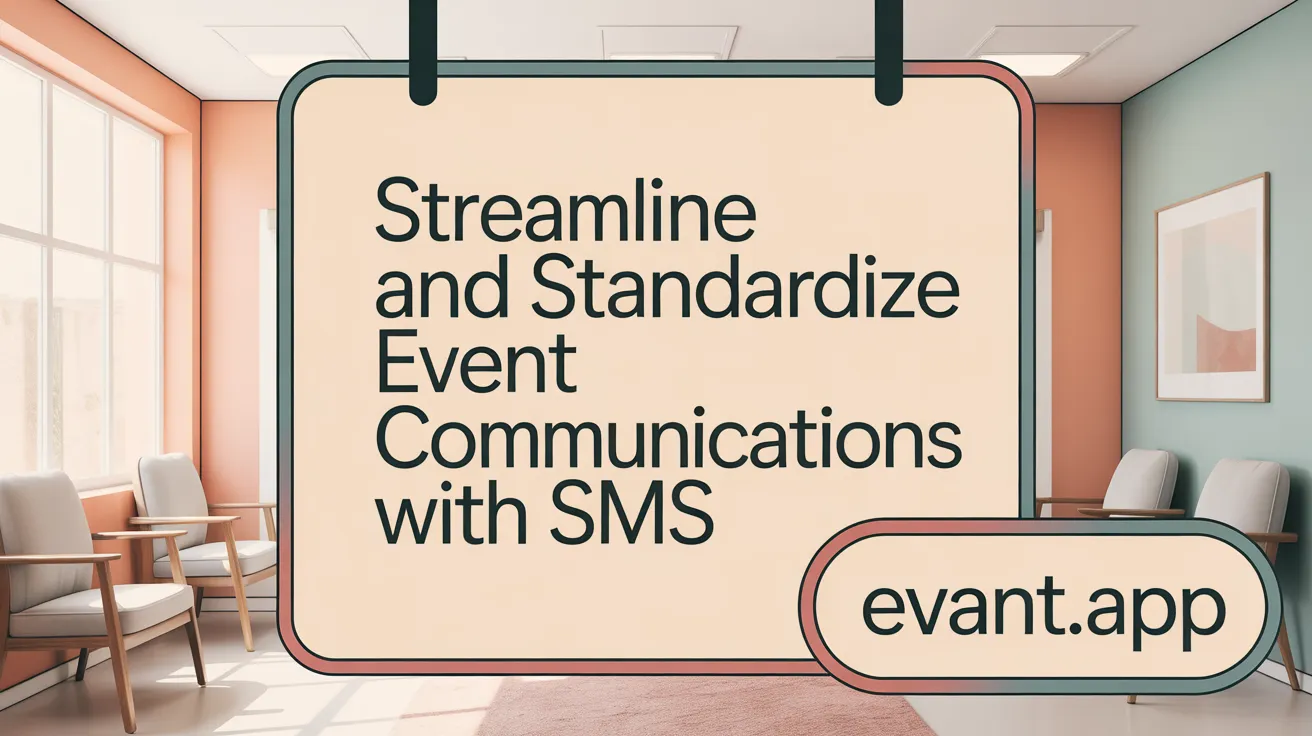 Harnessing the power of automation and analytics is crucial for effective event communication through SMS in religious communities. Platforms like Tatango, ChurchCast, and Flocknote offer tools such as scheduled messages, group messaging, and real-time engagement tracking. These features allow churches to send timely reminders and updates, reducing the chances of missed events.
Harnessing the power of automation and analytics is crucial for effective event communication through SMS in religious communities. Platforms like Tatango, ChurchCast, and Flocknote offer tools such as scheduled messages, group messaging, and real-time engagement tracking. These features allow churches to send timely reminders and updates, reducing the chances of missed events.
Two-way messaging plays an essential role in creating a responsive communication environment. It encourages members to confirm attendance, ask questions, or provide feedback, fostering greater involvement. Managing opt-outs is equally important: clear instructions and simple commands like 'STOP' ensure members can easily unsubscribe, maintaining compliance and respect.
Consistency in tone and timing enhances message clarity and builds trust. Sending messages at appropriate times—avoiding late-night and early morning hours—and maintaining a warm, welcoming tone reflect professionalism and care. Regularly scheduled messaging, aligned with church events or weekly rhythms, helps members anticipate and engage with communications.
In sum, combining reliable SMS tools with best practices such as automation, two-way communication, and tone management standardizes and enhances how churches coordinate their events, nurturing a more connected and responsive congregation.
Key Considerations for Choosing SMS Platforms and Templates in Religious Event Workflows

What criteria should be considered when selecting SMS platforms and templates to facilitate church and synagogue event workflows?
Selecting the right SMS platform and templates is vital for smooth and effective communication during religious events. An ideal platform must support features such as mass messaging, targeted outreach, automation, and scheduling, enabling staff to manage large and specific groups efficiently.
Integration capabilities are equally important. Compatibility with existing church management systems (ChMS) like Planning Center or Church Community Builder allows seamless data sharing and coordinated messaging. Multi-channel integration, including email and social media platforms like Viber or WhatsApp, can enhance message consistency and broaden reach.
Usability and security are critical factors. The platform should be user-friendly for staff and volunteers, minimizing the learning curve. Robust security measures ensure that sensitive member data and communications remain protected.
Template design plays a significant role in compliance and engagement. Pre-designed templates should include clear calls to action, such as RSVP links or instructions for participation. Opt-in and opt-out options must be incorporated to respect privacy laws and foster trust.
Analytics and reporting features enable organizations to track open rates, responses, and engagement, informing future communication strategies. Overall, selecting an SMS solution that combines high functionality with ease of use and security ensures effective management of religious events, maximizes member participation, and upholds compliance standards.
Creative and Practical Uses of SMS in Religious Event Management
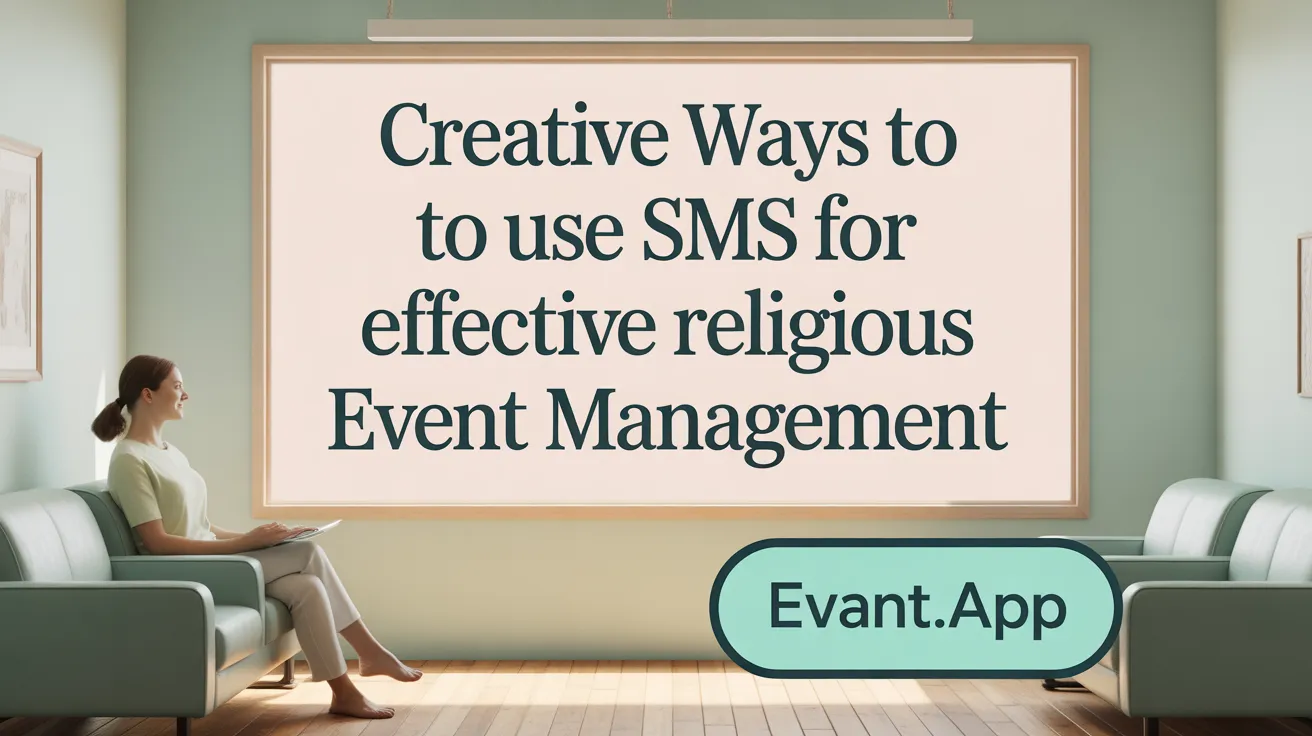
Sharing devotionals and inspirational messages
Text messaging provides a powerful way to keep your congregation spiritually engaged throughout the week. Churches can send daily devotionals, Bible passages, or inspirational quotes directly to members' phones. These messages serve as gentle reminders of faith and encourage personal reflection.
Managing prayer requests and emergency communication
SMS is an immediate and personal tool to handle prayer requests or urgent needs within the community. Members can quickly submit prayer needs via text, allowing pastors and support teams to respond promptly. During emergencies like severe weather or last-minute cancellations, SMS ensures everyone receives timely alerts, reducing confusion and fostering trust.
Conducting surveys and feedback initiatives
Gathering feedback is vital for improving church activities and understanding congregational needs. Text surveys and polls enable leaders to easily obtain opinions on events, sermon topics, or community services. Automated responses make this process seamless, providing valuable insights that help tailor future programs to member preferences.
| Use Case | Description | Benefits |
|---|---|---|
| Devotionals | Sending daily scripture and inspirational messages | Increased spiritual engagement, daily inspiration |
| Prayer Requests | Facilitating quick prayer submissions and responses | Builds community, timely spiritual support |
| Emergency Alerts | Updating members about cancellations or critical news | Ensures safety, reduces miscommunication |
| Feedback Polls | Conducting quick surveys or votes | Improves programming, member involvement |
Implementing SMS strategies enhances church communication, making it more personal, immediate, and effective. With high open and response rates, text messaging becomes an essential tool for nurturing faith and community connectivity.
Increasing Volunteer Coordination and Reducing No-Shows Through SMS
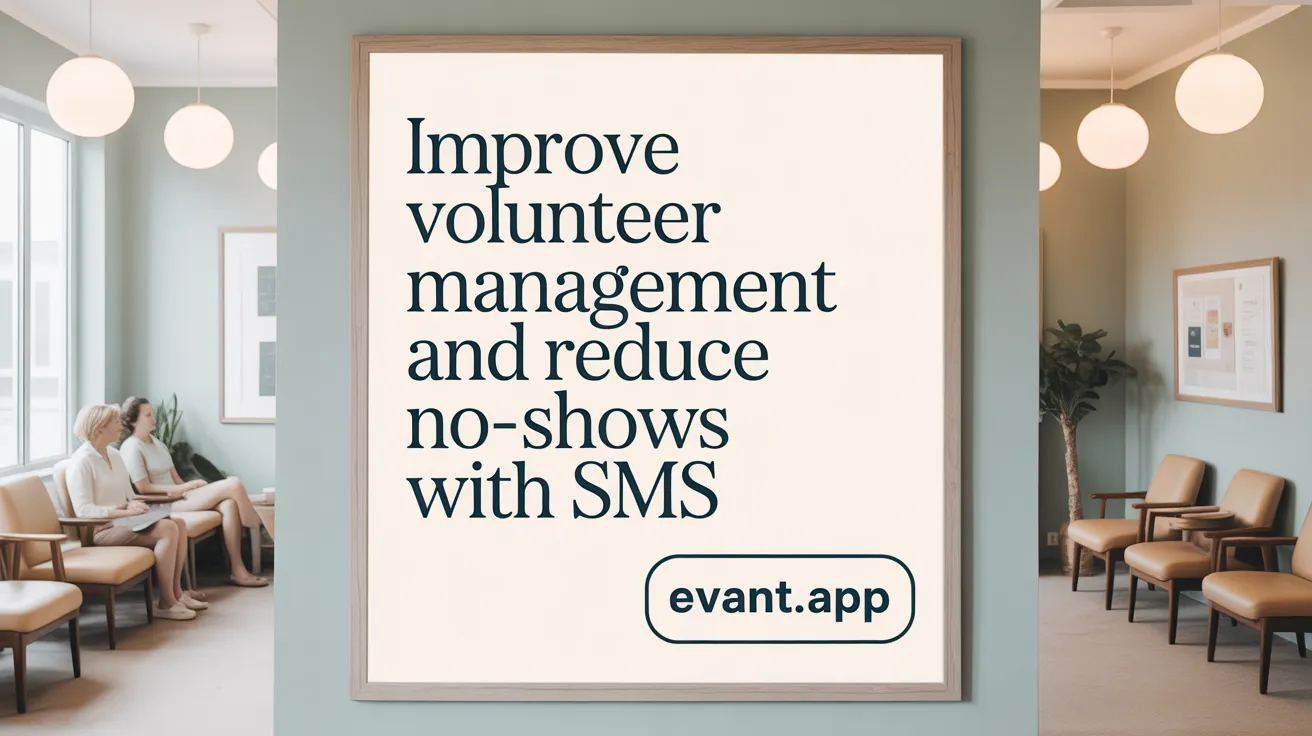
How can churches improve volunteer coordination with SMS?
Using SMS for volunteer management offers a streamlined way to keep volunteers informed and engaged. Automated shift reminders sent ahead of scheduled events ensure volunteers remember their commitments, reducing last-minute cancellations. These messages can be scheduled to go out 48 hours or 24 hours before an event, providing ample notice.
What is keyword-based self-scheduling?
Keyword-based self-scheduling allows volunteers to RSVP or select their preferred shifts by sending a simple text. By creating specific keywords such as 'SERVE' or 'SHIFT,' volunteers can reply to automatically sign up, saving staff time and reducing administrative work. This method also gives volunteers autonomy to choose convenient times, increasing participation.
What are the benefits of two-way communication?
Two-way messaging enables real-time interaction between church staff and volunteers. When volunteers send inquiries or updates, staff can respond immediately, helping to handle last-minute changes or questions efficiently. This level of responsiveness builds trust, fosters community spirit, and minimizes no-shows.
Additional tools that support volunteer communication include contact segmentation, which targets messages to specific groups (like youth or seniors), and auto-responses that confirm receipt of sign-ups or cancellations.
Overall advantages include:
- Improved organization and scheduling efficiency
- Increased volunteer turnout
- Enhanced community engagement and trust
Implementing these SMS strategies transforms volunteer coordination into a seamless, reliable process that strengthens church activities and community involvement.
Driving Online Giving and Fundraising via SMS Campaigns
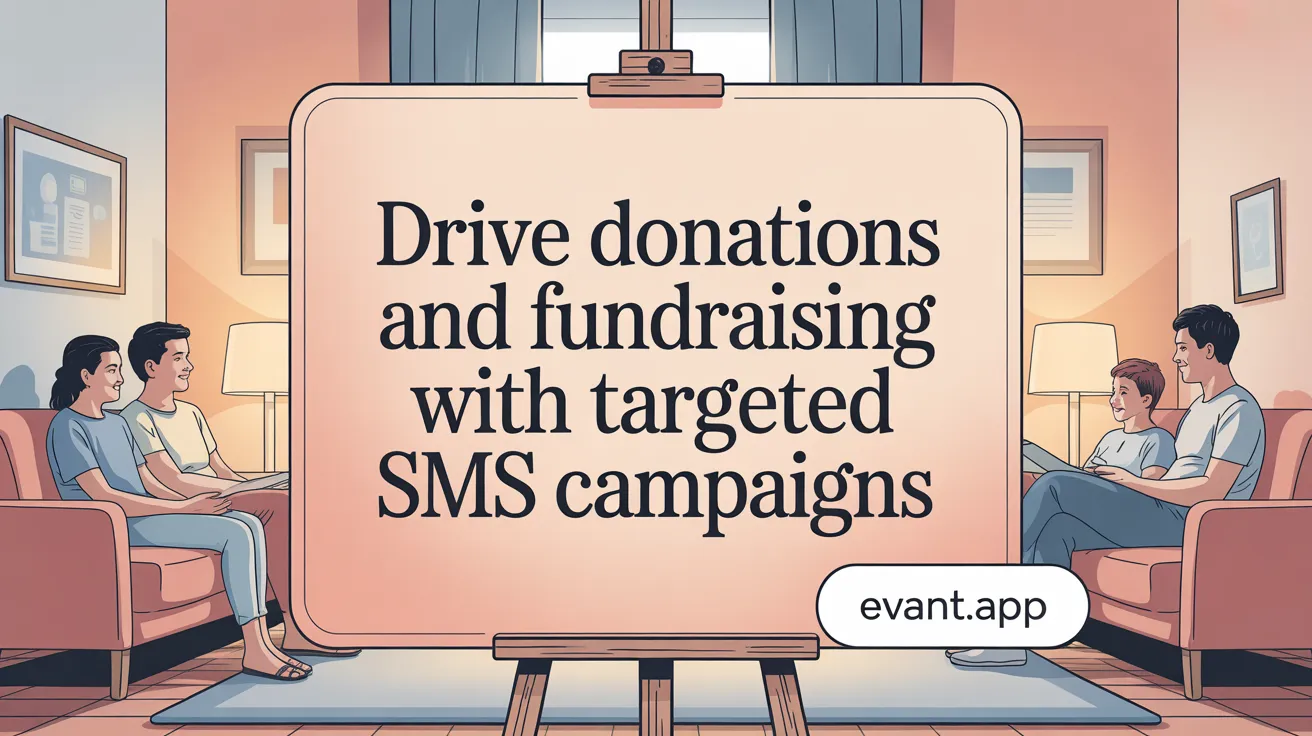
How does text-to-give functionality foster online donations?
Text-to-give technology allows church members to donate quickly and conveniently by sending a simple keyword or link via SMS. This method boasts a 99% open rate, and most donations are read within three minutes, making it an incredibly efficient giving channel.
How can churches promote stewardship and fundraising campaigns?
By integrating SMS campaigns with giving platforms, churches can easily share donation links during service, special events, or emergencies. These messages often include compelling calls to action, making giving accessible and immediate. Automated workflows and personalized messages enhance engagement, encouraging more consistent giving.
How do engagement tracking and analytics optimize SMS fundraising efforts?
Platforms like Tithely and Tatango provide analytics dashboards that track open rates, click-through rates, and donation conversions. These insights help churches refine their messaging strategies, identify the most effective content, and tailor campaigns for better results.
| Feature | Description | Benefit |
|---|---|---|
| Click tracking | Monitors how many recipients click donation links | Measures message impact |
| Response rates | Tracks replies and donations | Gauges engagement |
| Segmentation | Targets specific groups | Increases relevance |
| Automated follow-ups | Sends reminders or thank-yous | Builds donor loyalty |
Mass texting services make fundraising simpler, faster, and more effective by connecting church communities directly to their mission. With engaging strategies and precise analytics, churches can enhance their stewardship efforts and reach financial goals efficiently.
Embracing SMS for Dynamic and Efficient Faith Community Events
Integrating SMS technology into church and synagogue event management offers unparalleled advantages in communication speed, engagement, and organizational efficiency. By selecting the right platforms, adhering to best practices, and creatively leveraging SMS capabilities, religious organizations can foster stronger community bonds, streamline event logistics, and enhance participation. As technology evolves, adopting these digital tools allows faith communities to maintain relevance, accessibility, and responsiveness in an increasingly connected world, ensuring that every member feels informed, involved, and valued.
References
- 10 Ways to Use a Mass Texting Service for Churches - Trumpia
- Best 10 Text Messaging Services for Churches of All Sizes - Tithe.ly
- Boost Attendance and Engagement with Text Messaging for Churches
- 5 Ways Churches Can Boost Member Engagement with Text ...
- Top 10 Texting Services for Churches and Best Practices - Tatango
- Creative Ways to Use Text Messaging for Church Engagement
- SMS for Churches: How to Amplify Your Outreach - Mailchimp
- The Best Way to Streamline & Standardize Church Communication
- The Ultimate Guide to Church Text Messaging Services - Tithe.ly
- Choosing a Texting Service for Churches: 12 Best Picks
Related Blogs
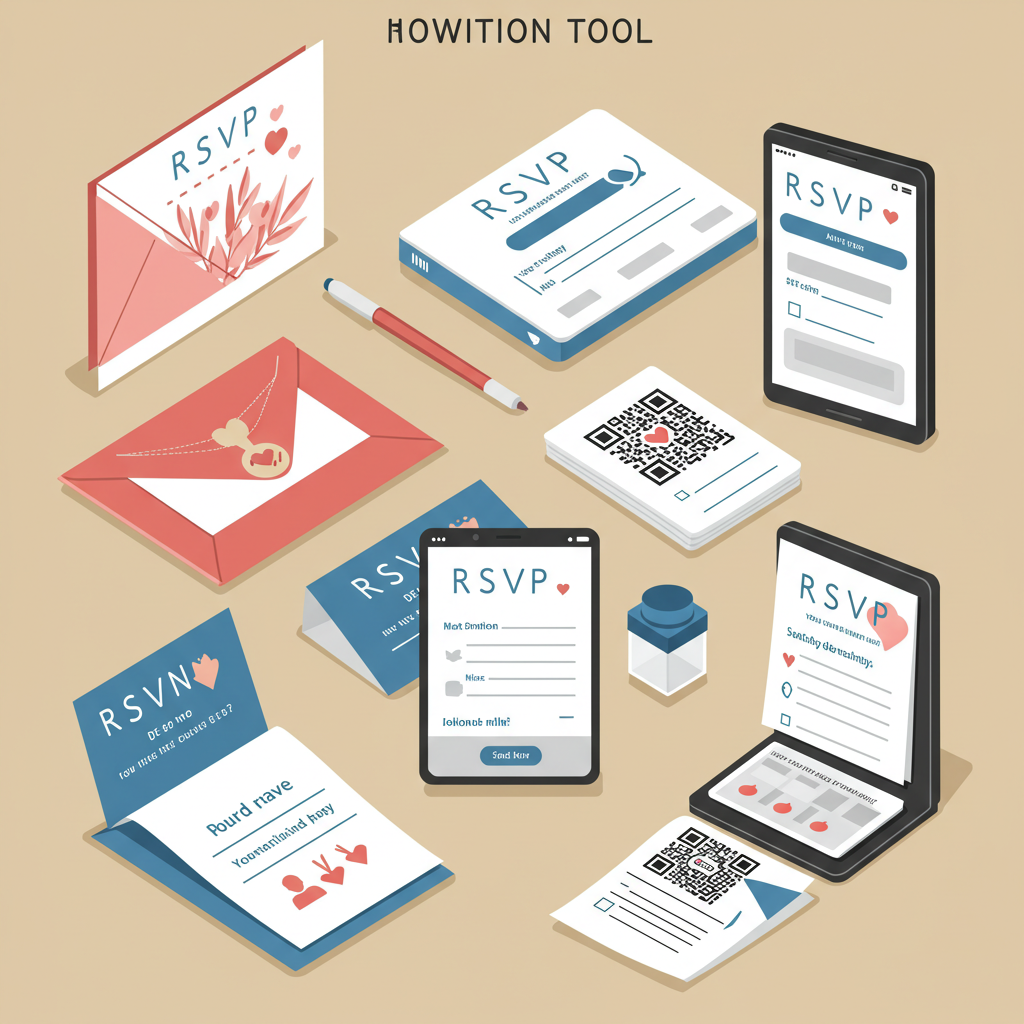

RSVP Tools: Best Options, Google RSVP Limitations & Why Text Wins
Michael PedoeemExplore the best RSVP tools, Google RSVP’s limitations, and why text RSVP is the most efficient for event planning with instant confirmations and reminders.


My School SMS: Bridging the Gap between Schools, Parents, and Students
Michael PedoeemMy School SMS - What's it all about


Ready to transform your community



